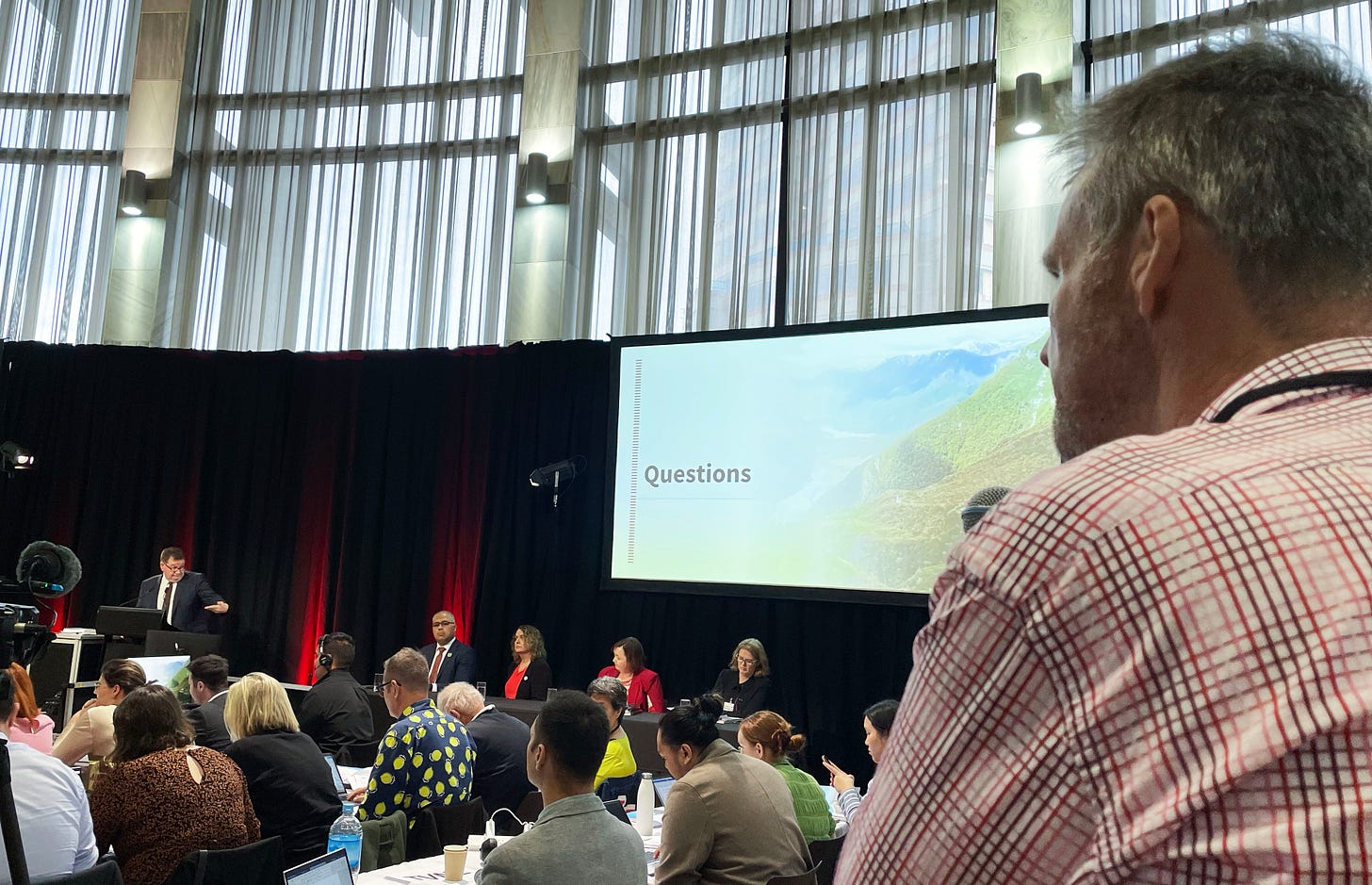
TL;DR: The Labour Government has unveiled a couple of middle-class welfare policies in its last Budget before the October 14 election, which is on a knife edge and will be decided by a slither of median voters who will welcome $1.6 billion in spending on extra child-care subsidies and grants for home insulation and heat pumps.
Finance Minister Grant Robertson has tried in Budget 2023, his sixth as Finance Minister and his fifth ‘Wellbeing’ Budget, to walk a tightrope in the short-term between extra spending to win re-election, and a need to constrain fiscal stimulus to avoid adding inflationary and interest rate pressure to the economy.
In my view, Robertson and his new ‘boss’ PM Chris Hipkins, have probably done enough to avoid being tagged as reckless spending inflation-creators. But they have also done little to change the 30-year long trajectory of our political economy towards being a housing market with bits tacked on, where low wages, low investment, low taxes and low public debt are all designed to reward leveraged investment in residential land, rather than productivity-and-real-wage enhancing investment in infrastructure and real businesses.
Usually at this point in the email I insert a paywall, but have decided to open it up fully to the public and free subscribers immediately for listening, reading and sharing, given the public interest involved. I thank paying subscribers for their permission in advance and would welcome more paying supporters so I can keep doing this sort of public interest journalism on housing unaffordability, climate change inaction and poverty reduction.
The features of Budget 2023
Budget 2023 did produce a couple of rabbits out of the hat that will be hard for the Opposition to argue against and are focused firmly on the middle of the electoral spectrum, including:
The expansion of early childhood education subsidies to two-year-olds from just three-to-five year olds ($1.2 billion over four years);
Extending health homes subsidies for heat pumps, home insulation and efficient lights to an extra 100,000 homes owned by richer New Zealanders ($402.6 million over four years); and,
Extra Government contributions to KiwiSaver savings for paid parental leave recipients ($19.6 million over four years).
The Highlights
A couple of new policies will be welcomed by poorer families struggling with education, transport and health costs, including:
Extending the free school lunch programme until the end of 2024 ($325 million over four years);
Removing the $5 prescription fee that stopped 135,000 people from collecting their prescriptions in 2021/22 and created extra demand for hospital care ($618.6 million over four years) (see my detailed piece on this from February);
Providing free public transport for 5-12 year olds and half price transport for 12-25-year olds who get community services cards ($327 million over four years); and,
Increasing the trust income tax rate to 39% from 33% from April 1 next year, which will raise $1.1 billion over four years, including 78% of trust income coming from 5% of trusts.
The Lowlights
Budget 2023 was again focused on the short-term and the political, rather than the long-term need to fix housing unaffordability, markedly increase emissions reductions and dramatically improve poverty levels. Those disappointments included:
Extending Kainga Ora’s build programme by only one year to add a net 3,000 new houses, whereas Labour has previously specified multi-year build programmes that have delivered 11,830 net new state houses from 2018 to 2023;
Just $120 million on extending vehicle charging networks, meaning New Zealand will continue to have the weakest electric car charging network in the world; and,
the failure to plan to fill an infrastructure deficit of $110 billion and deal with future population growth with a further $110 billion of infrastructure spending.
The Cliffhangers
From a purely political point of view, Budget 2023 is an astute set of policies that will be hard for the Opposition to attack and create a couple of ‘cliffhanger’ policies that could expire if Labour is not re-elected, forcing National to say before the election whether they would cut policies most voters would support. That includes the extension to the end of 2024 of:
the Apprentice Boost programme designed to help pay for an extra 30,000 apprentices;
the free school lunch programme set up and expanded during Covid; and,
Kāinga Ora’s state house build programme with an extra 3,000 net new homes.
Ka kite ano
Bernard














Share this post